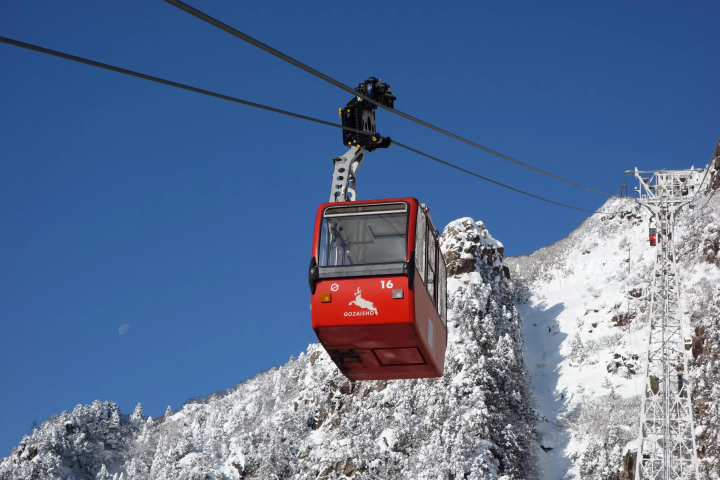Simple is Best: Lodgings for the Casual Traveler at Asakusa Ryokan Toukaisou

Asakusa Ryokan Toukaisou is located in Tokyo's historical district of Asakusa, just a 10-minute walk away from Sensoji Temple. The greatest appeal of this ryokan is that it offers affordable rooms and warm hospitality while striving to make their guests' experience of Asakusa a truly memorable one.
Welcome back to Tokyo Ryokan Stories, my series on Japanese inns and hotels in Tokyo! I’m Roza Akino, and I live and work in Japan. Thanks for joining me on my journey to explore the lesser-known lodgings in Tokyo!
Toukaisou is located in Asakusa, just a few minutes’ walk from Asakusa Station on the Tsukuba Express Line. As I walk through the area, I take note of a few interesting shops: particularly a restaurant with a festive-looking entrance, and a beer specialty pub called Asakusa Beer Kobo.
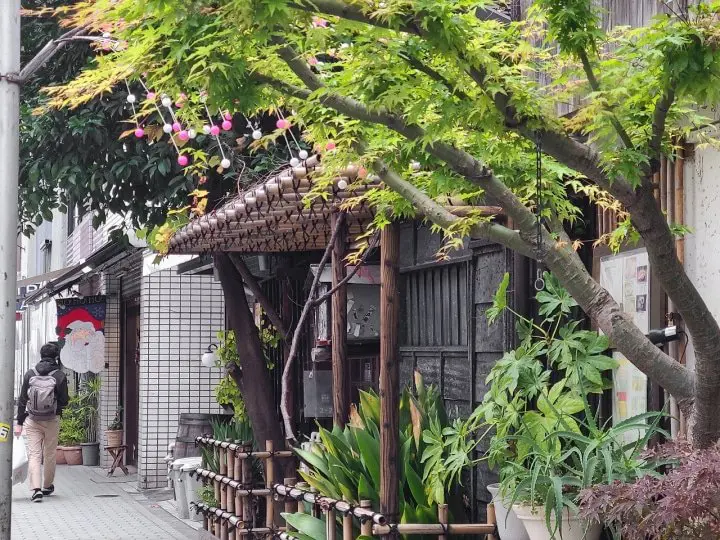
A festive-looking izakaya I encounter on the way to the ryokan
The ryokan building is fully covered in red brick. As I enter the building, a well-built man wearing a green shirt and a green towel around his neck comes to greet me at the door in a friendly and cheerful manner. This is Hideaki Hattori-san, the owner of the hotel. In Japanese name order, "Hattori Hideaki" has a really nice ring to it and is quite impressionable, fitting of his personality.
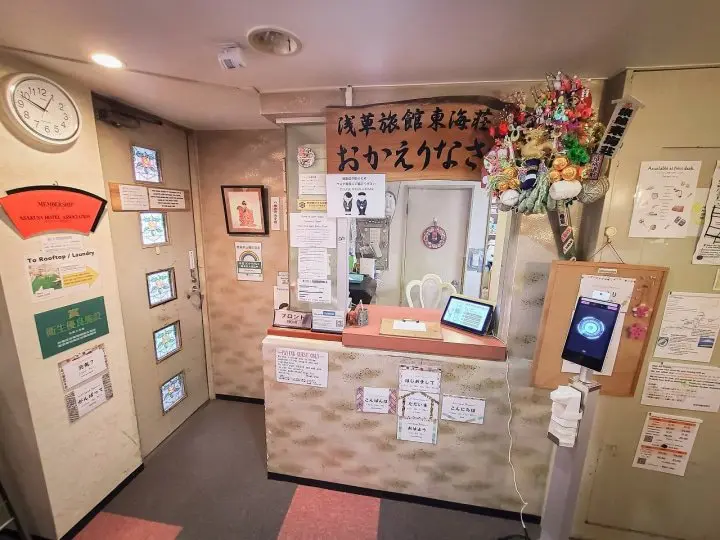
The front lobby with a sign, “Welcome Back” in Japanese
Toukaisou has been mainly geared toward international guests, and with its many English signs and wall-posts showing simple Japanese vocabulary, is a friendly environment for those who may not be so familiar with Japanese language and culture.
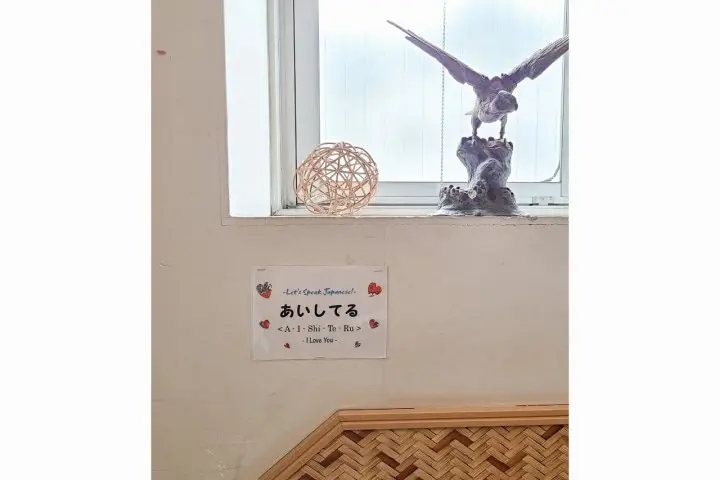
A sign on the wall explaining simple Japanese vocabulary—this one is the word for “I love you”
The ryokan was established in 1972 by Hattori-san’s grandfather, who was running five inns at the time. It used to be a traditional two-story wooden building.
Hattori-san was 35 at the time that he took over the ryokan 19 years ago, and the majority of the guests were Japanese. However, when Hattori-san took the advice of a friend and registered the ryokan on a hostel site, he was in for a big change—the ryokan was booked solid for six months, and all of a sudden Hattori-san found himself catering to international guests with no knowledge of English, in a time before the convenience of cellphones and instant translation apps. Regardless of this obstacle, though, Toukaisou still managed to get very high ratings on the hostel site.
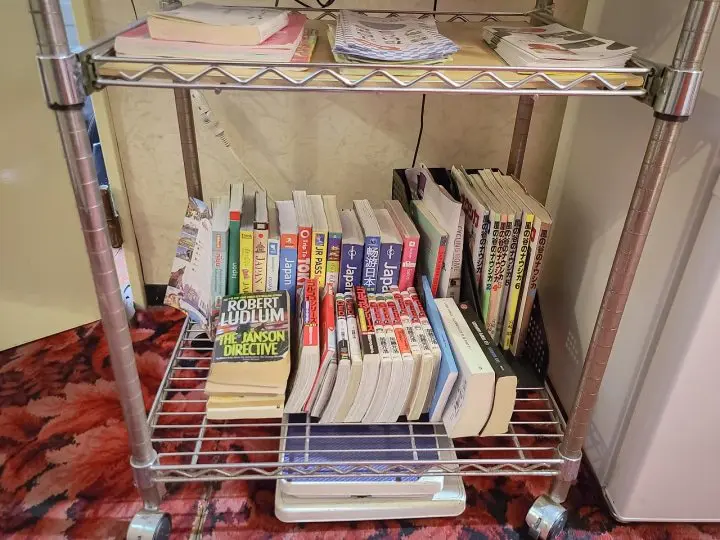
There is a book rack in the hallway with various books available to borrow—of course, you can always leave a book as well
What is it that left such a good impression? “I think it’s because they saw our earnestness, for example with cleaning, or giving information. Regardless of the language barrier, there was a communication of hearts. Also, the lack of English might have actually helped, because even if there was some kind of trouble, we could only nod and smile because we couldn’t really understand,” he laughs.
Nevertheless, Hattori-san and the staff have a tendency to become friends with everyone who comes and stays. Nowadays, the ryokan has staff members that do speak English in order to make communication smooth and help with any trouble. Hattori-san continues to explain that he was also influenced by the lectures provided by the owner of Sawanoya Ryokan, the pioneer in preparing ryokan for international guests.
While the rooms at Asakusa Ryokan Tokaisou are on the smaller side, all 14 of them have a private bath and toilet.
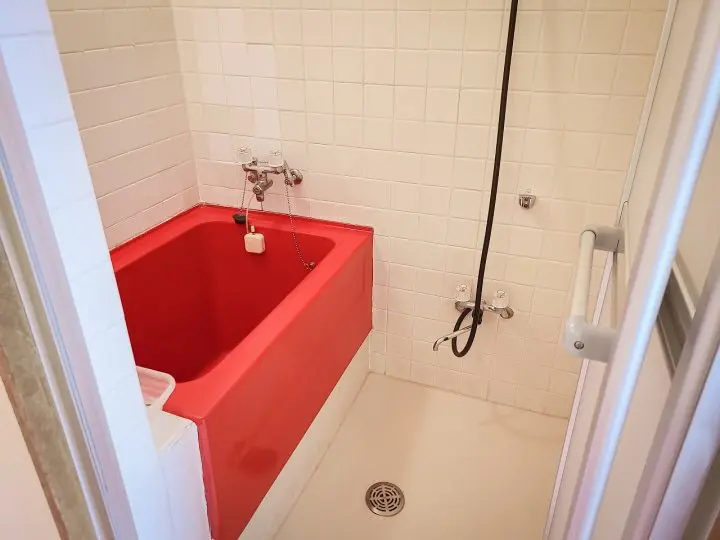
The color of the bathtub varies from room to room
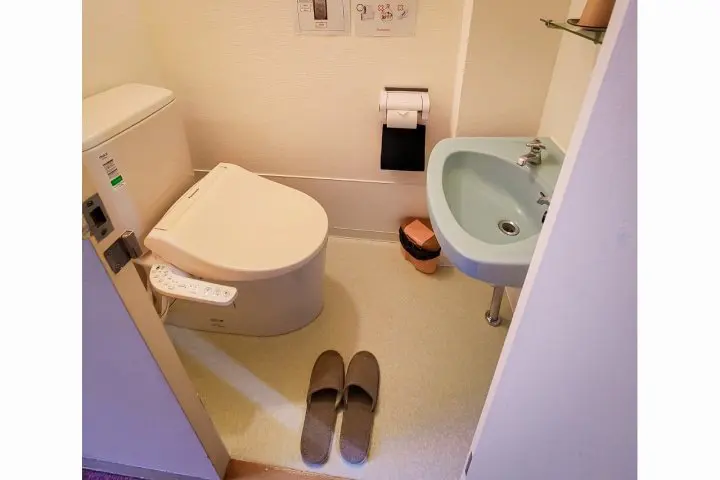
In most of the rooms, the bath is separate from the toilet
The lodgings are simple, and great for the economic traveler who wants to stay in a traditional tatami room with their own restroom at an extremely affordable price. Before the pandemic, Toukaisou also had a hostel with bunkbeds and a shared shower that was often used by groups such as traveling student tours from abroad.
The rooms don’t include breakfast or dinner, but instead, Hattori-san has a grand repertoire of restaurants he can recommend. He makes it a habit to walk around the area in the evening so that he can have the most up-to-date recommendations for his guests.
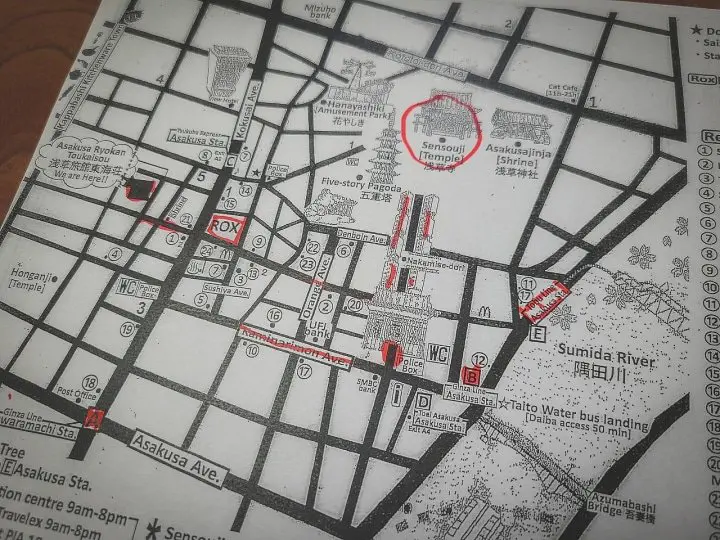
Hattori-san’s map—but for details, you’ll have to talk to the man himself
I mention the beer pub and restaurant that I saw on my way here, and he quickly jots down a memo on the names and locations to check out later. “Whenever I hear about a shop or restaurant from a guest, I always write it down and take a look, and if it’s good I add it to my list of recommended spots,” he remarks. I ask him for his recommended sushi restaurant, and without missing a beat, he tells me the name of a nearby place that has fresh and delicious sushi, and is not too pricey. The only caveat, he says, is that it’s a standing sushi bar.
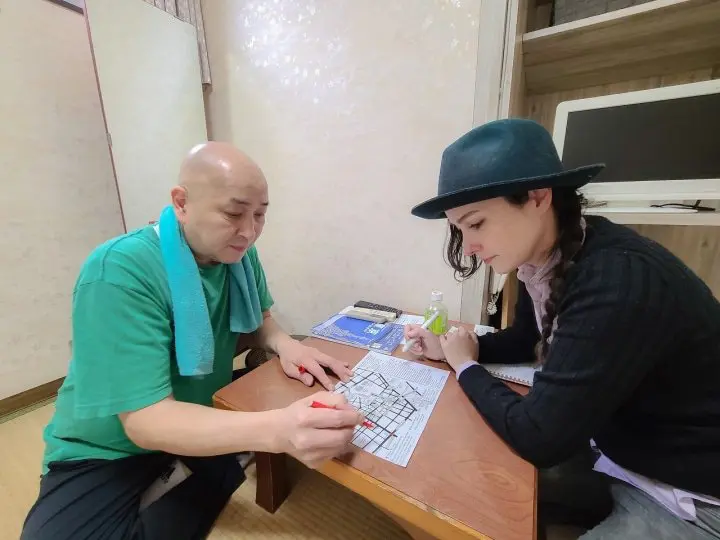
Here Hattori-san is explaining to me some of his recommendations
The location of Toukaisou is perfect—it’s close to the famous Kappabashi kitchenware street, and only a 10-minute walk to Asakusa’s famous Sensoji Temple. Although it’s a quick straight line to the temple, Hattori-san recommends taking the scenic route instead. Asakusa is one of the most famous tourist destinations in Japan. Apart from the temples and shrines, it’s also known for its traditional Edo culture, with a number of theatres specializing in taishu-engeki (a genre of popular theatre) as well as rakugo (traditional storytelling) performances scattered throughout the area.
He gives me a map with a list of restaurants that includes everything from ramen to sushi, family restaurants, izakaya, and even vegetarian options. Each shop name even has the type of food listed in parenthesis. As he’s explaining his various recommendations, I see the earnestness he had been talking about earlier.
Hattori-san then shows me the various rooms in the ryokan.
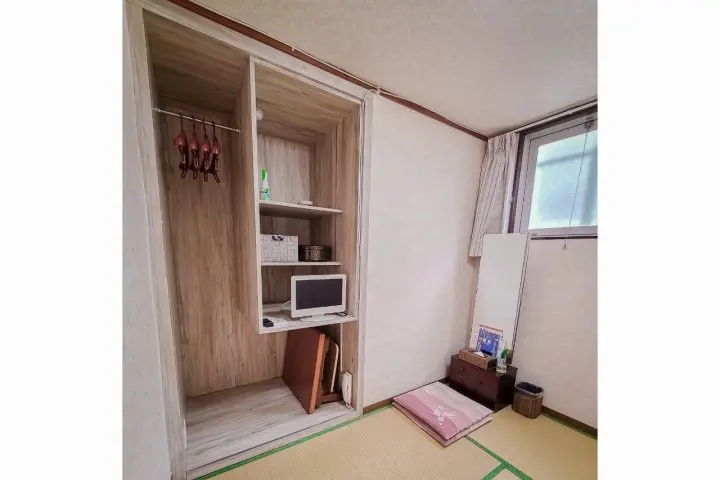
An example of a standard room
As I take a tour of the rooms, I notice another important aspect of the rooms—the bedding looks very comfortable.
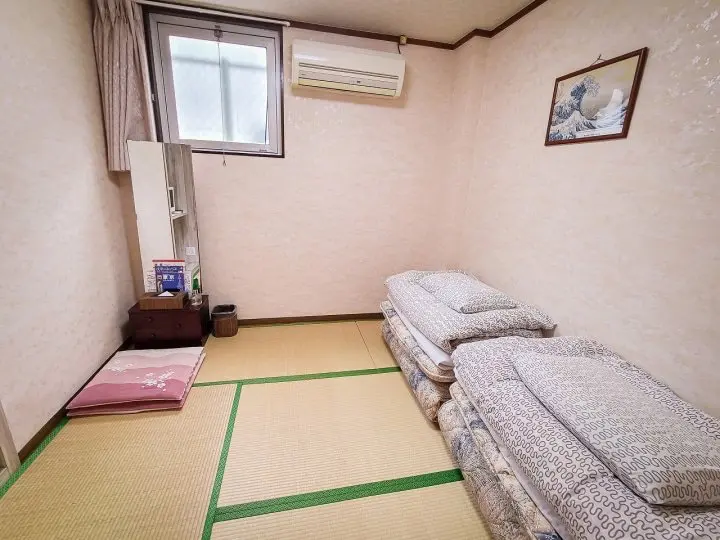
Each room has the common ryokan set—a yukata for sleeping and a container with a tea set.
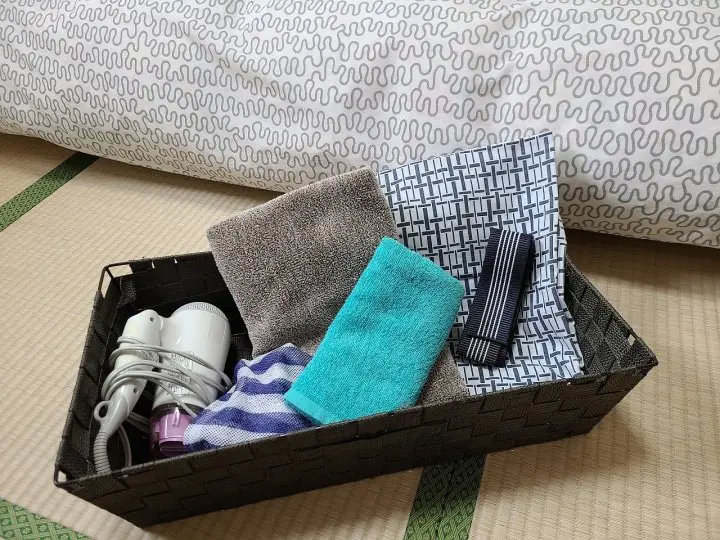
The yukata and bath set
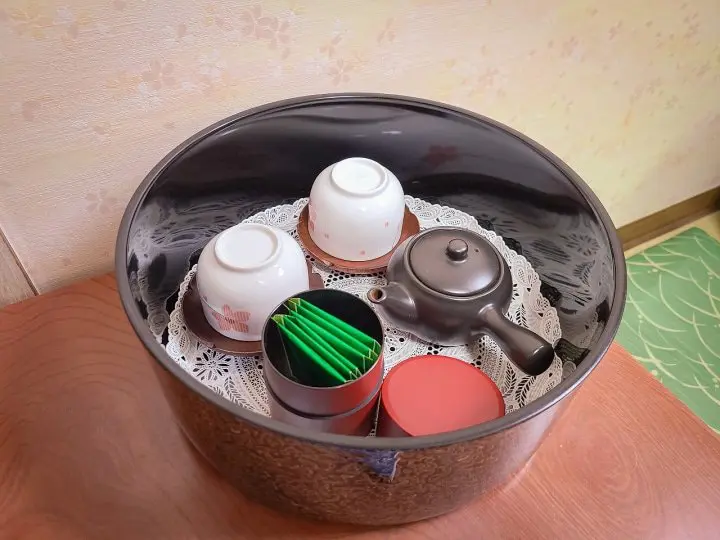
A container with green tea and cups
Some of the rooms have futons that can be doubled up for extra cushion, while the double rooms have semi-double Simmons mattresses to make sure you get a good night’s rest.
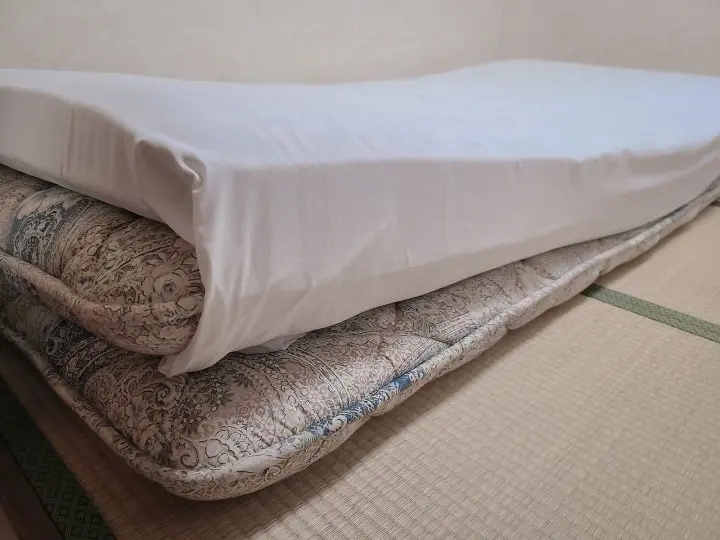
A doubled-up futon—you can choose your preference of layers for softness
Hattori-san goes on to explain that when he gets a reservation, he researches the customs of the country that the guest is coming from and does everything he can to make their stay more comfortable.
He hopes that once the pandemic subsides, Toukaisou can start holding events again and bring back the pre-COVID lively atmosphere with fun gatherings such as barbeques on the rooftop.
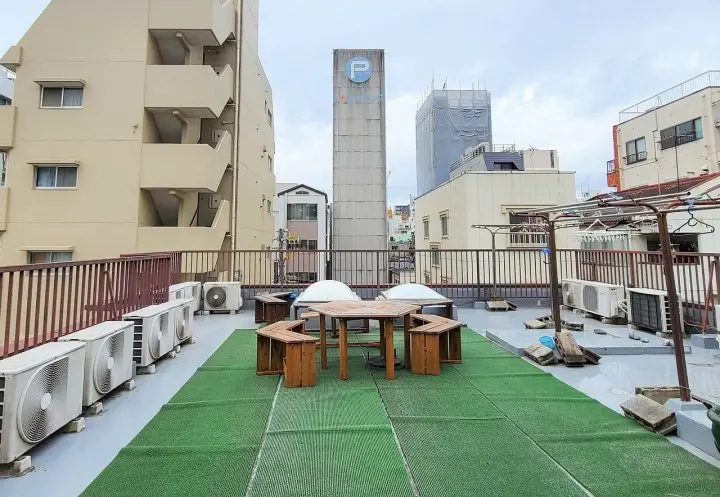
The rooftop area
Hattori-san continues, “I think because we are a small ryokan, it’s easy to build a relationship with our guests. We are there when they come back to the hotel, so we can ask them where they’re going tomorrow and see if they need any information or help. They can ask us on the spot and we can offer them our help. This would be much harder to do in a large place. That’s about all we can do for them…but I think maybe that’s what matters most, regardless.”
Hattori-san, I think you’re right. A comfortable mattress (or futon), a cozy room smelling of fresh tatami, a pleasant conversation, and a heart-to-heart communication at a great budget price. What more could one want?
I am an actress and model living in Japan. Tokyo Ryokan Stories is my essay series about less-known but amazing ryokan and hotels in Tokyo.

























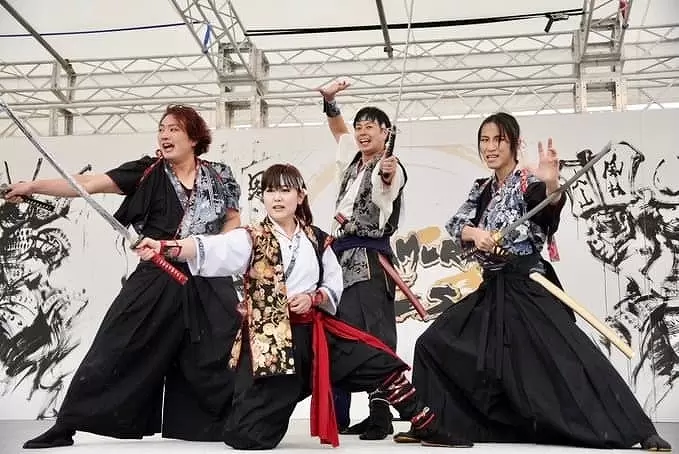
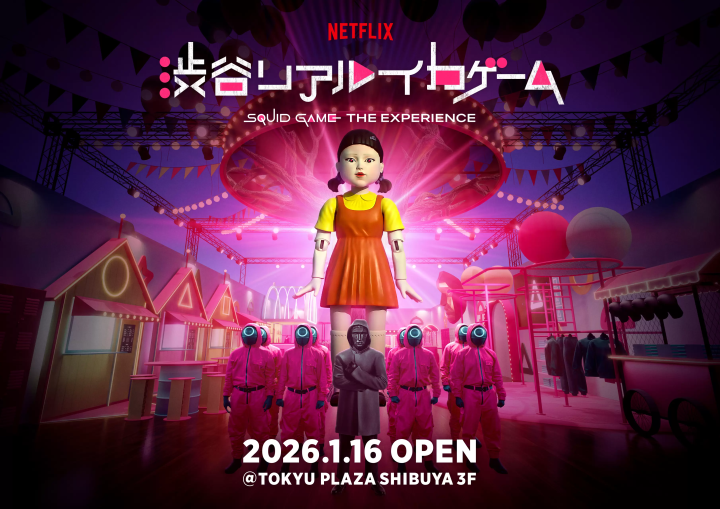
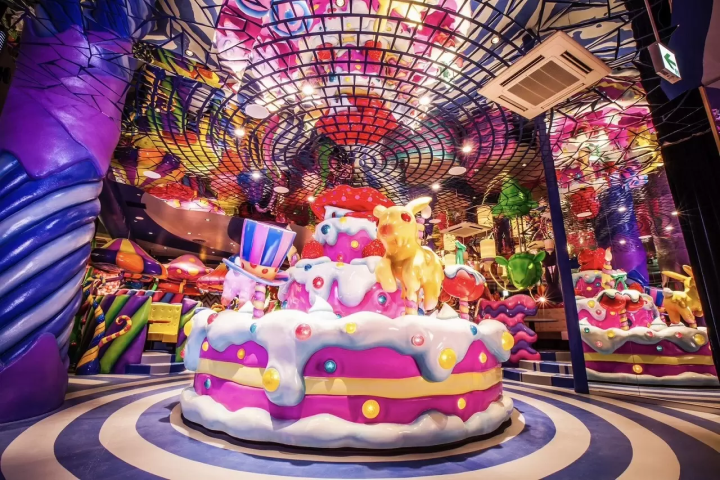

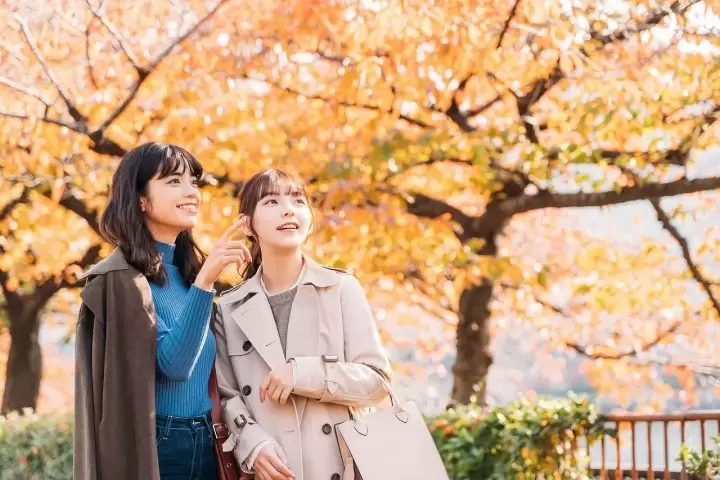

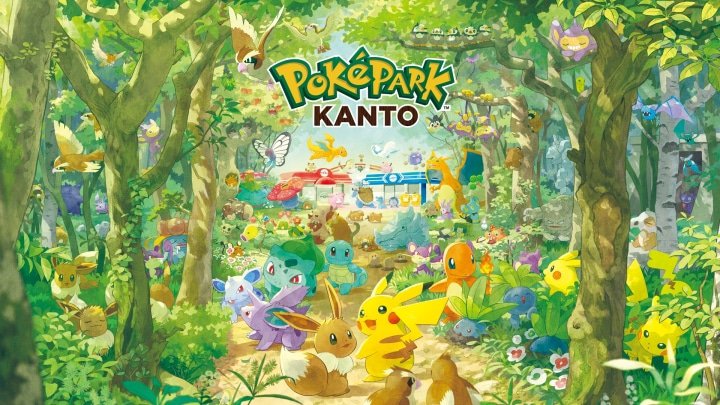


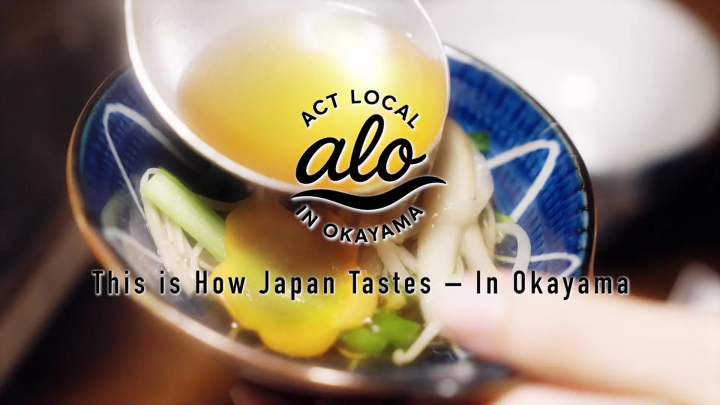

![[Yufuin] From breathtaking views to skin-beautifying hot springs. A variety of day trip hot springs to fully enjoy Yufuin](https://resources.matcha-jp.com/resize/720x2000/2026/01/18-255919.webp)
